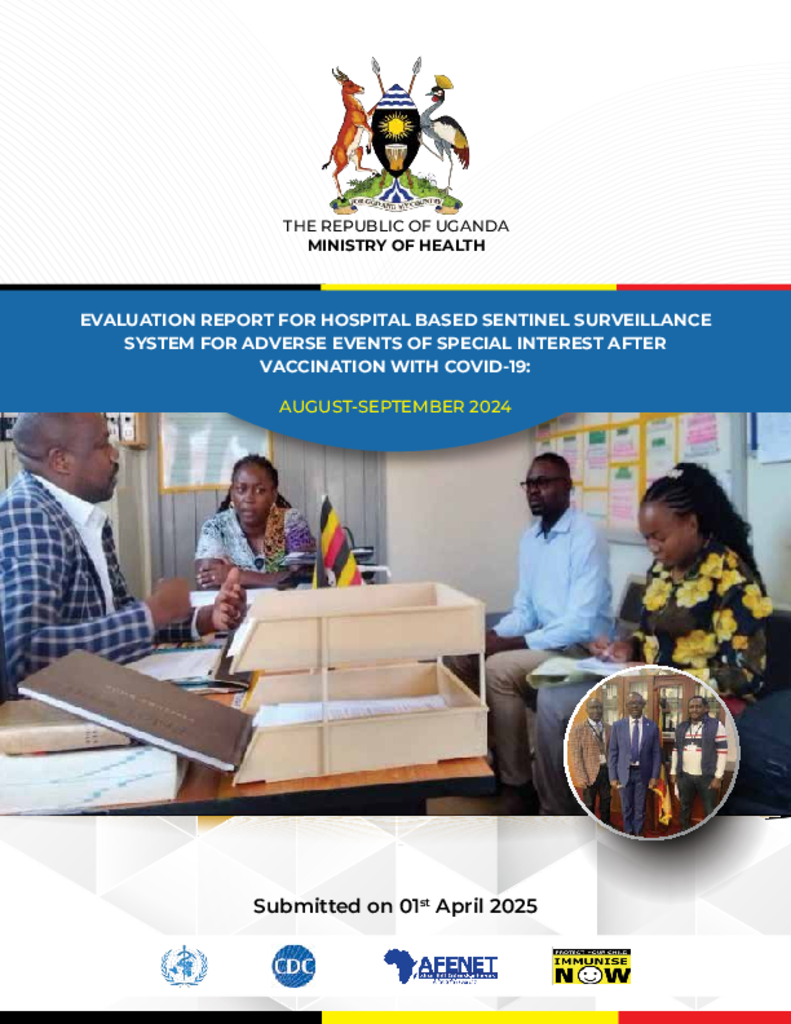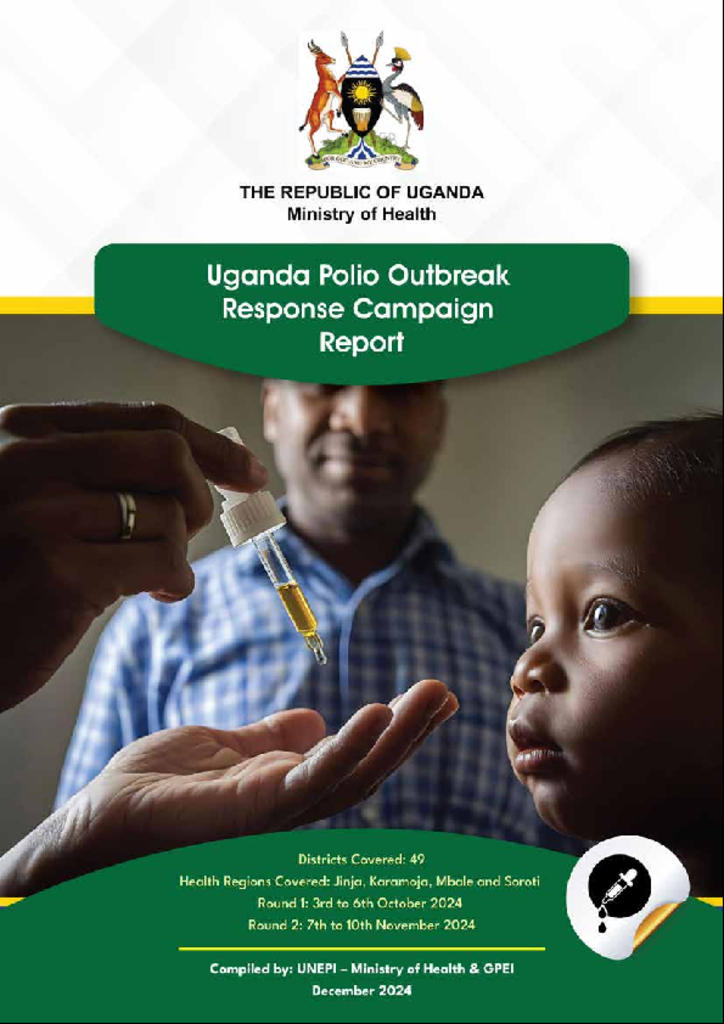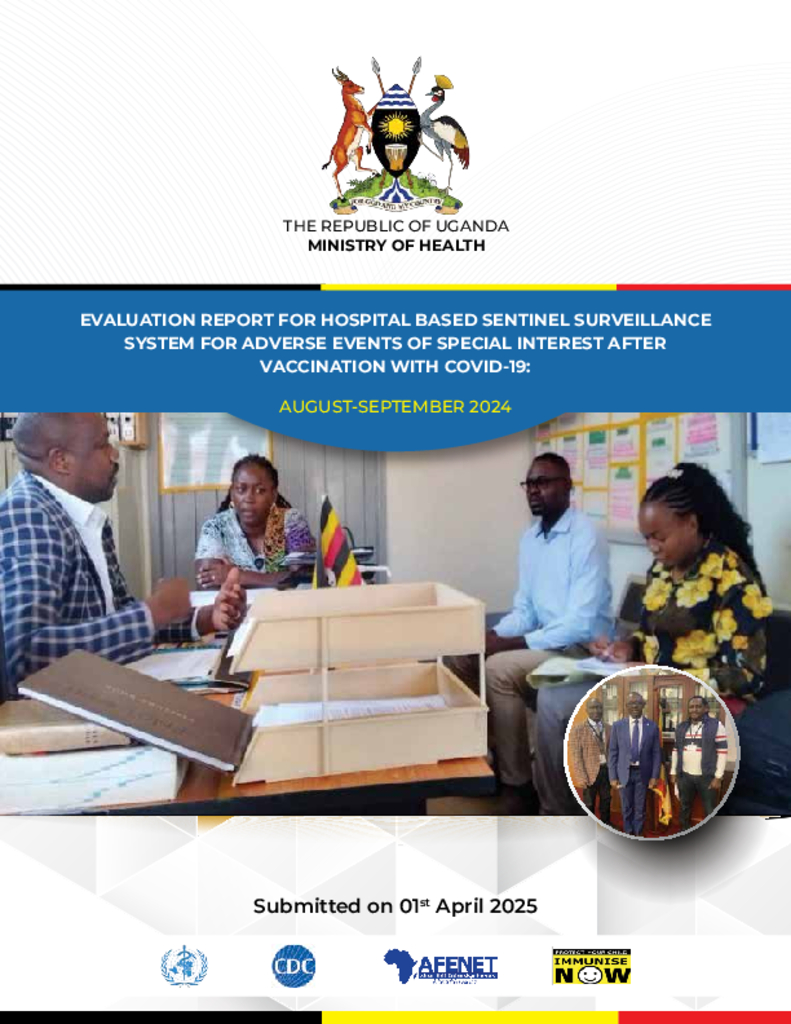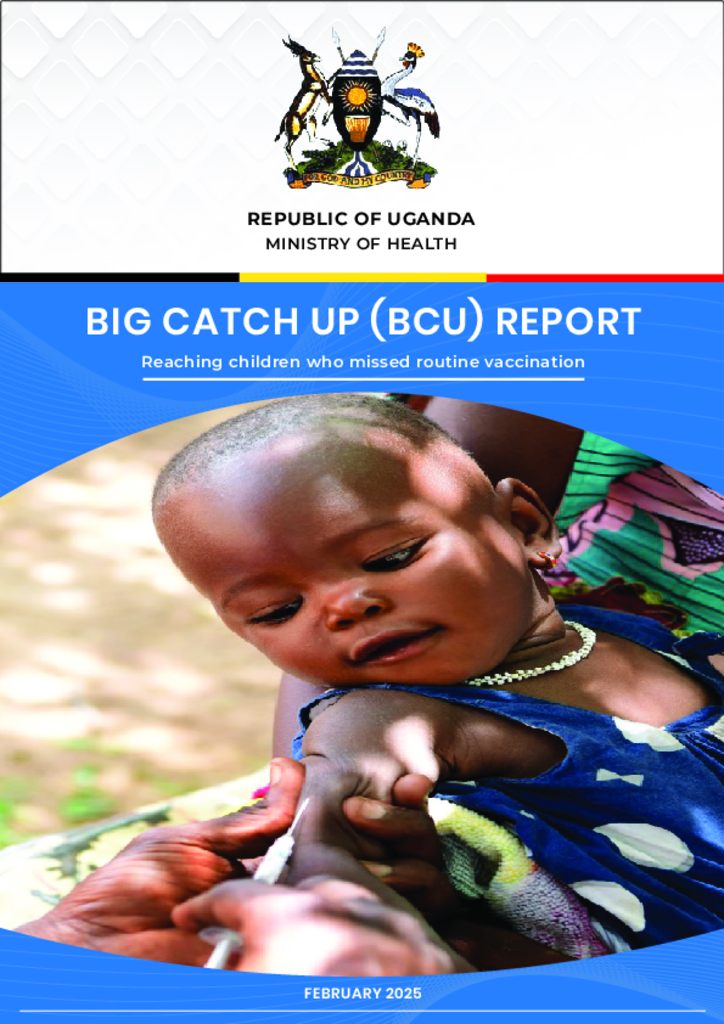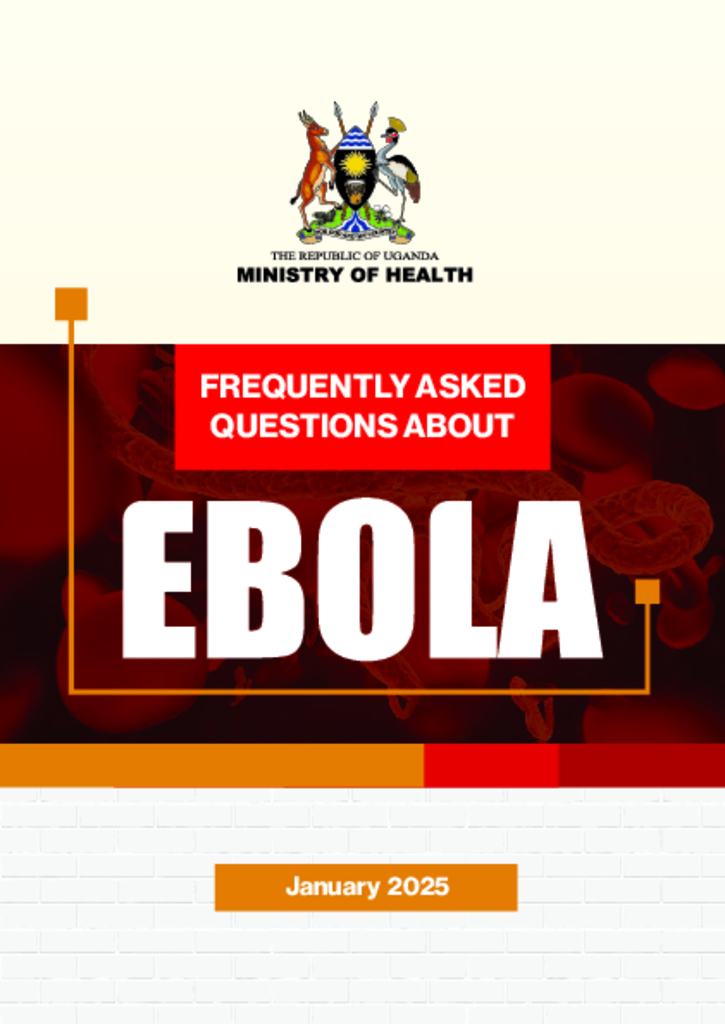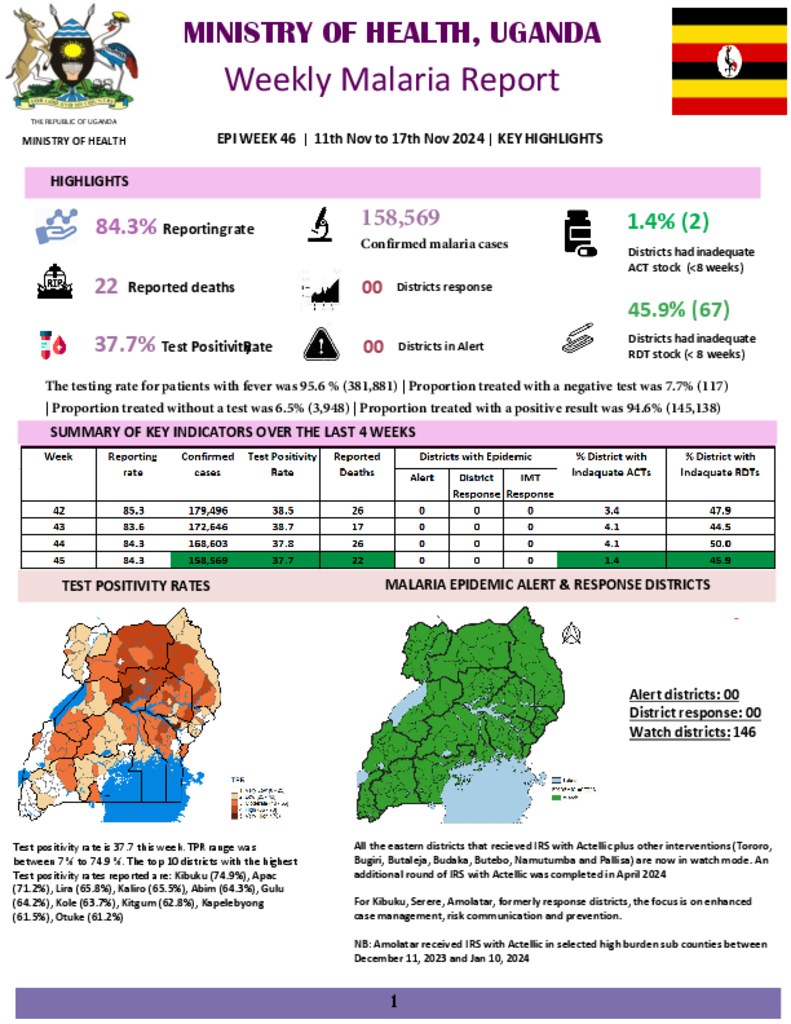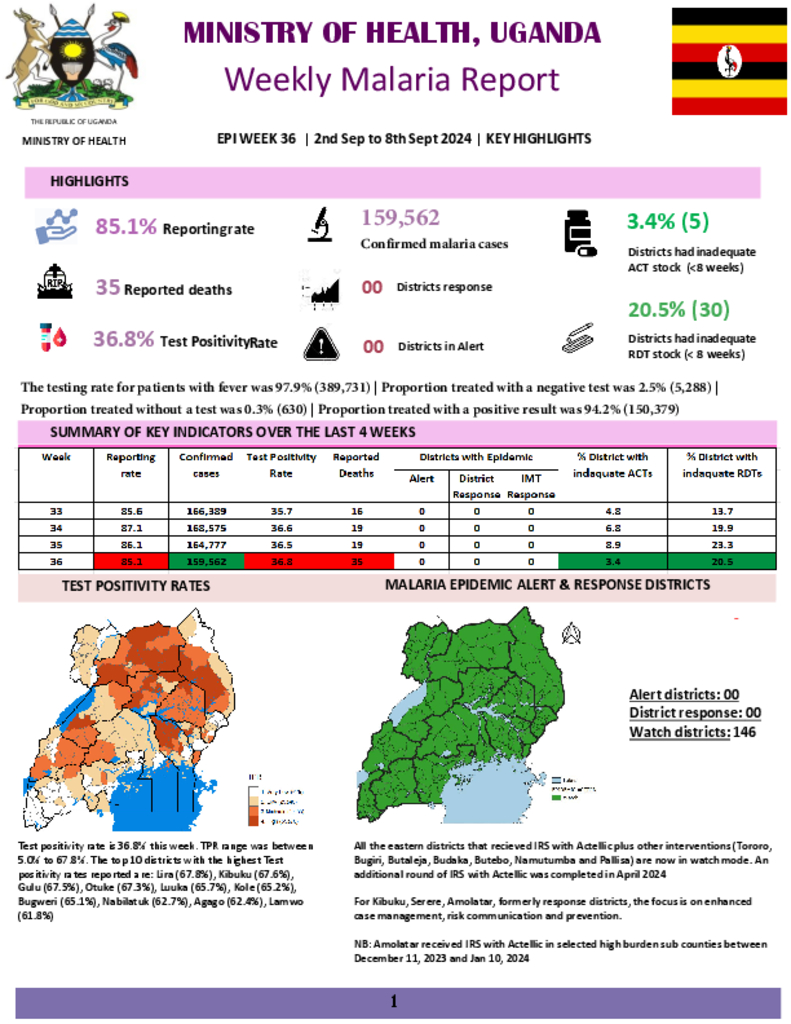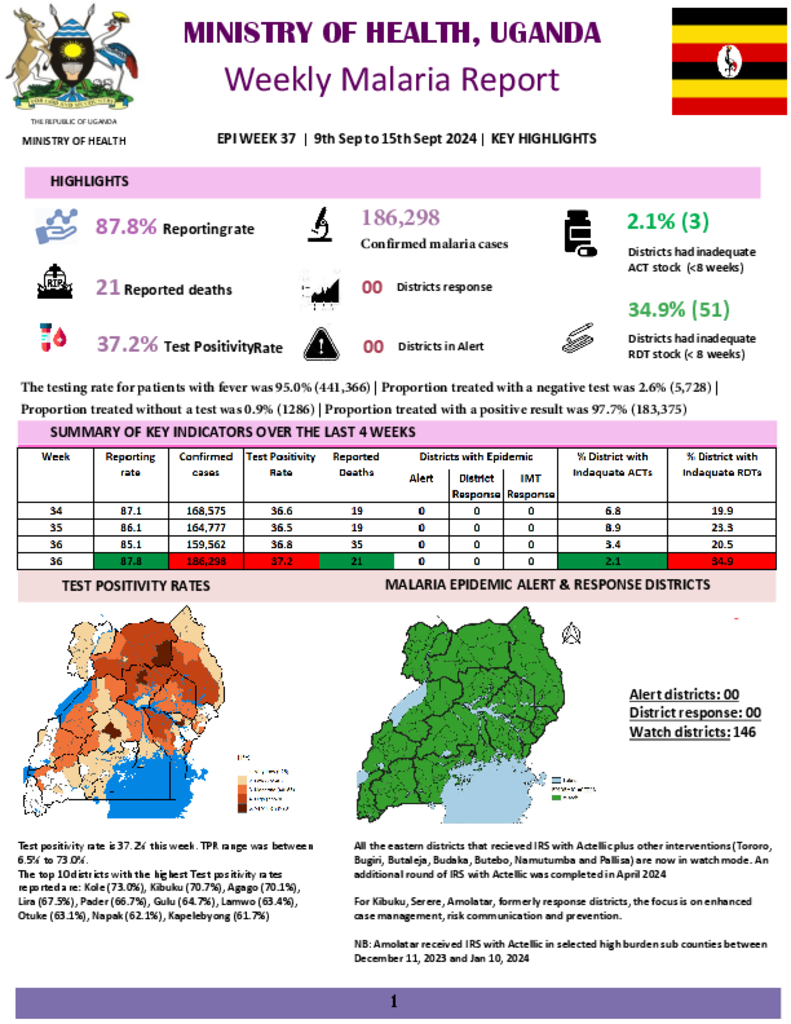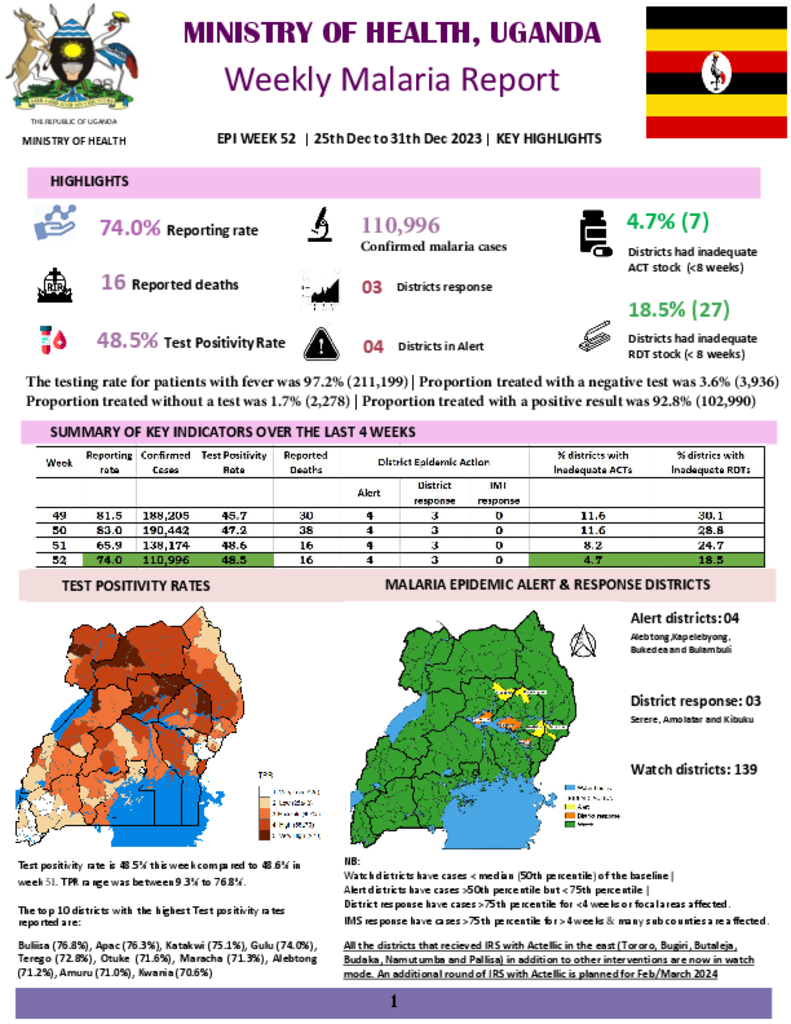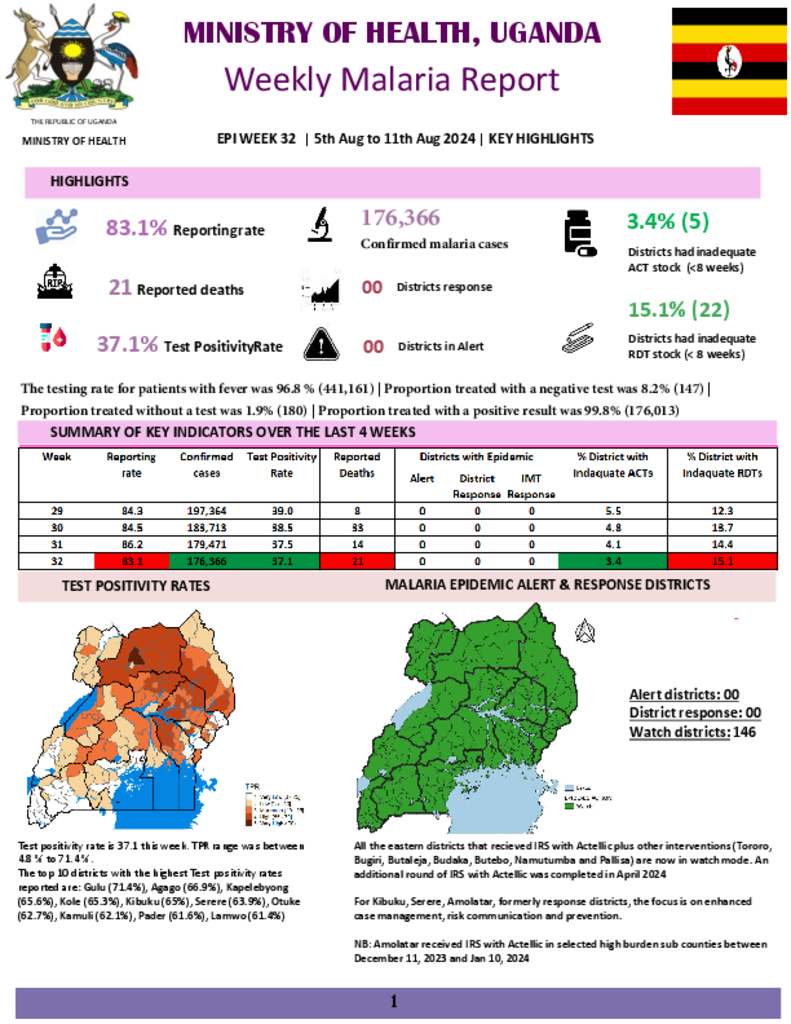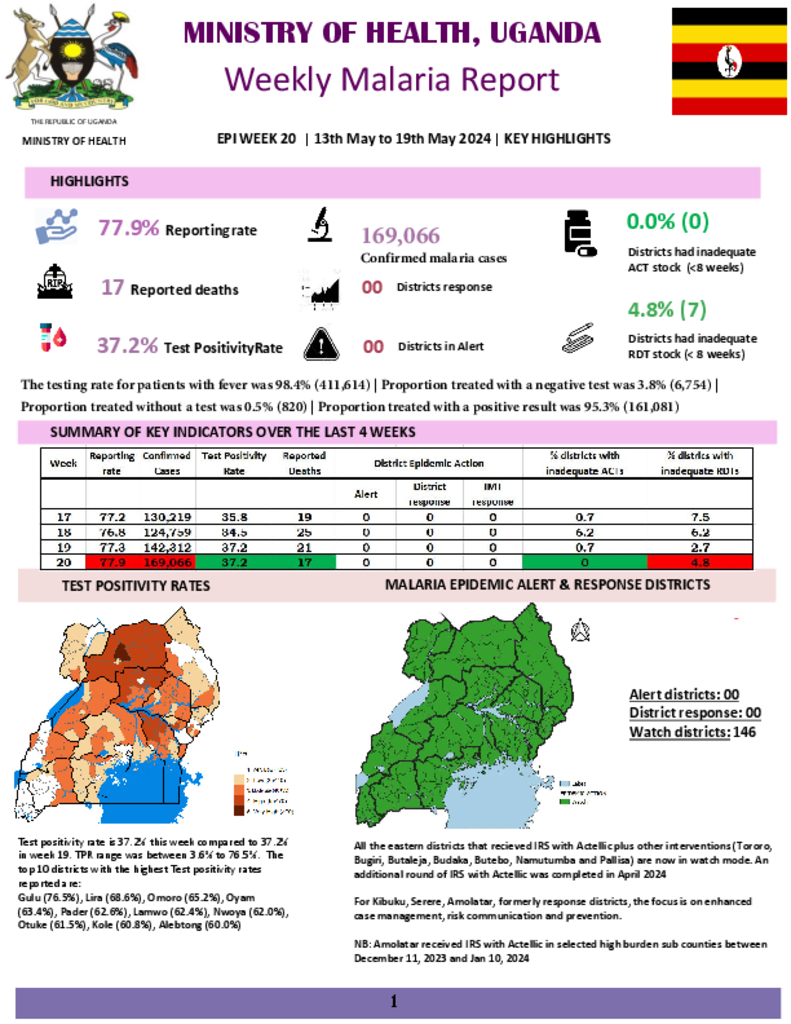The evaluation aimed to assess the impact and feasibility of hospital-based sentinel site surveillance system (HBSSS) as a vaccine safety surveillance model for low- and middle-income countries. It focused on several key themes, including the implementation process, facilitators of HBSSS, benefits, feasibility, lessons learned, and recommendations. Findings indicated that AEFI (Adverse Events Following Immunization) reporting improved significantly during the HBSSS implementation period, increasing from 30 per 100,000 to 85 per 100,000 by 2023.
This campaign, led by UNEPI under the Ministry of Health and supported by GPEI partners, aimed to interrupt virus transmission and bolster population immunity. The campaign achieved remarkable results, with 3,269,211 children vaccinated in Round 1 (118% administrative coverage) and 3,500,521 children in Round 2 (127% administrative coverage). Independent monitoring showed coverage of 92% in Round 1 and 96% in Round 2, while Lot Quality Assurance Sampling (LQAS) recorded 90% in Round 1 and 95% in Round 2. Surveillance efforts were enhanced during the campaign.
Systematic vaccine safety surveillance is indispensable in ensuring public trust of the Expanded Program on Immunisation (EPI) and quality of vaccines. The hospital-based sentinel surveillance system (HBSSS) was designed to detect safety signals of rare adverse events of special interest (AESl) or to evaluate safety signals arising from other sources, following vaccination with COVID-19 vaccines in Uganda. The evaluation aimed to assess the impact and feasibility of HBSSS as a vaccine safety surveillance model for low- and middle-income countries.
Big Catch-up vaccination refers to the action of vaccinating an individual who, for whatever reason, is missing or has not received doses of vaccines for which they are eligible, as per the national immunization schedule. This Big catch up was designed to reach children who have missed routine
vaccinations, often due to disruptions in healthcare services, geographic barriers, or other challenges including those were affected by the COVID Pandemic restrictions.
This document contains answers to the questions that are frequently asked by the people in our communities.
This weekly malaria report, serves to inform all stakeholders at community, districts and national level about the trends, public health surveillance and interventions undertaken in detecting, preventing and responding to malaria events in Uganda, on a weekly basis.
The malaria surveillance status report, serves to inform all stakeholders at community, districts and national level about the trends, public health surveillance and interventions undertaken in detecting, preventing and responding to malaria events in Uganda, for the month of August 2024.
This weekly malaria report, serves to inform all stakeholders at community, districts and national levels about the trends, public health surveillance and interventions undertaken in detecting, preventing and responding to malaria events in Uganda, on a weekly basis.
This weekly malaria report, serves to inform all stakeholders at community, districts and national levels about the trends, public health surveillance and interventions undertaken in detecting, preventing and responding to malaria events in Uganda, on a weekly basis.
This weekly malaria report, serves to inform all stakeholders at community, districts and national levels about the trends, public health surveillance and interventions undertaken in detecting, preventing and responding to malaria events in Uganda, on a weekly basis.
This weekly malaria report, serves to inform all stakeholders at community, districts and national levels about the trends, public health surveillance and interventions undertaken in detecting, preventing and responding to malaria events in Uganda, on a weekly basis.
This weekly malaria report, serves to inform all stakeholders at community, districts and national levels about the trends, public health surveillance and interventions undertaken in detecting, preventing and responding to malaria events in Uganda, on a weekly basis.
